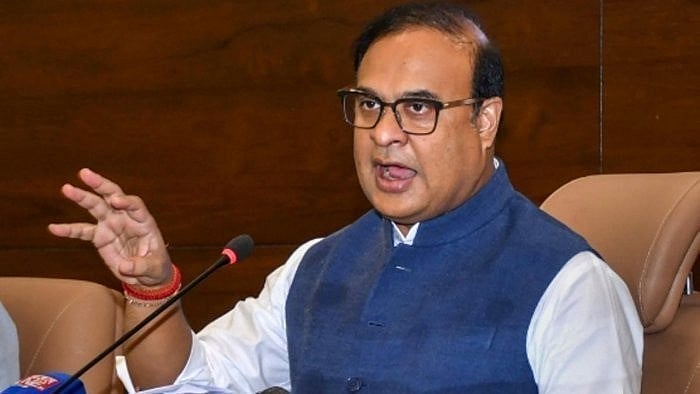
Assam CM Himanta Biswa Sarma
Credit: PTI File Photo
Guwahati: Back in April 1979, Paresh Baruah along with a few other Assamese youths had taken up arms under the banner of United Liberation Front of Assam (ULFA) with a target to "liberate Assam from Indian occupation."
Baruah headed the banned outfit's "armed wing" as ULFA leaders and cadres straddled across many countries and fought against security forces several times as they continued their "armed movement." Many top leaders including chairman Arabinda Rajkhowa and others had to join the peace process years after their detention in Bangladesh in 2010. In December 2023, Rajkhowa group of ULFA signed an agreement with the government while acknowledging the futility of the armed movement to solve Assam's problems.
More than four-decades down the line, the 68-year-old Paresh Baruah, however, still remains the head of the armed wing of ULFA, which he renamed as ULFA-Independent following the departure of Rajkhowa and a few other founding rebel leaders. Not just ULFA, all ethnic insurgent groups in Assam have laid down their weapons and signed agreements, separately, since the BJP-led government came to power in 2016. According to Himanta Biswa Sarma, who became the CM in 2021, Baruah faction of the ULFA has remained the "only hurdle" in establishing "complete peace" in Assam, something which BJP promised before the elections.
Baruah's stance
Despite several calls for peace by CM Sarma, Baruah has refused to take part in talks without a discussion on ULFA's "core demand for sovereign Assam." On Sunday, in an email statement, purportedly issued by Baruah, the fugitive rebel leader again questioned the armed action by the security forces while stating that a discussion on its core demand is a democratic right. Baruah referred to the operations carried out by the security forces since its birth and specifically reiterated his claim that the security forces had carried out attacks on its camps inside Myanmar on July 13 with bombs using drones and missiles leading to killing of three of its "commanders." Baruah, however, stated that his cadres would continue the fight.
Myanmar shelter
Although the army rejected Baruah's claim about the attacks inside Myanmar, sources in the security establishments claim that ULFA and a few other rebel groups, which were almost similarly formed in Nagaland and Manipur, still have camps inside Myanmar. Most of the camps are in southern parts of Myanmar, where the military rulers still don't have control and shares the border with India's Northeast, they say. Baruah along with a few other leaders and cadres are believed to have been taking shelter in an area along the Myanmar-China border. The outfit, according to the security establishments, have around 500 cadres.
Aide in BJP
Amid the claim over the attack in Myanmar, Drishti Rajkhowa, who served as "deputy military chief" of ULFA-I and once a close aide of Baruah, joined BJP on July 17. Although Rajkhowa, whose original name is Manoj Rabha, surrendered in 2020, was inducted into BJP months ahead of the Assembly elections. While welcoming Rajkhowa into the party, BJP's Assam unit president and Lok Sabha member Dilip Saikia said a decision about his induction was taken due to a "strategic reason." Sources within the party said by inducting Rajkhowa into the party, BJP was trying to increase the pressure on Baruah to join the peace process and thereby allow the party fulfill its pre-poll promise of bringing "complete peace" in Assam.